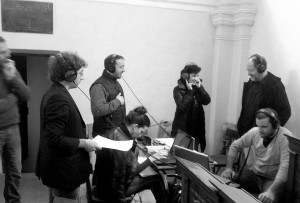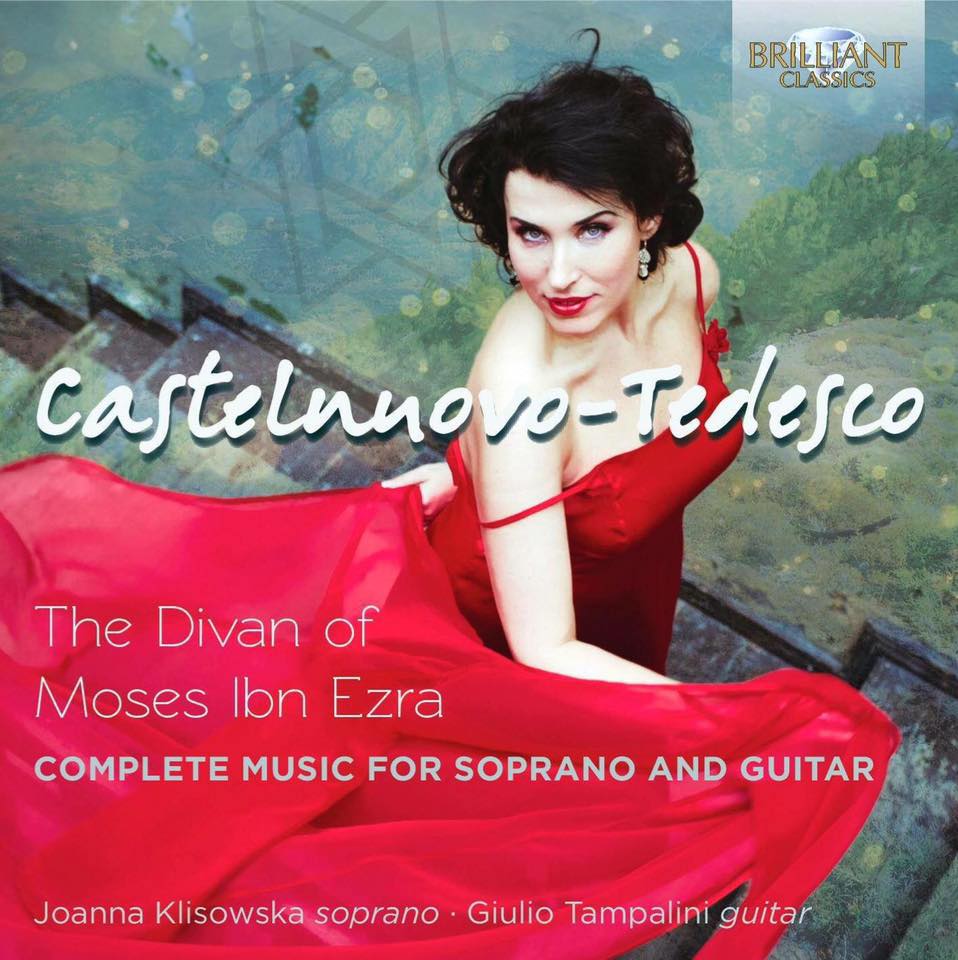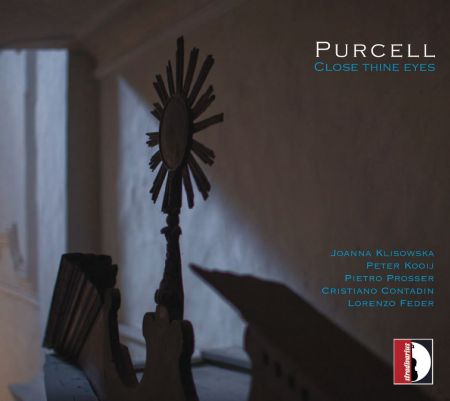CDs
Discography
Piatti – Music for Cello and Piano, 2 Songs – Brilliant Classics 2018
Piatti’s concert-tours culminated in a visit to London, where he settled in 1846. In the mid-1800s, musical life in the British capital was full of energy and opportunity. When Verdi learnt that it would be Piatti leading the cellos in the first performances of his new opera, I Masnadieri, he wrote a Prelude consisting of a cello solo with an orchestral accompaniment, which he dedicated to the great cellist.
In his own compositions Piatti reconciled virtuoso figurations with a highly lyrical approach to melody which is on show here in two of the songs he wrote for English audiences: O Swallow, Swallow (to a text by Alfred, Lord Tennyson) and La Sera (‘I love the hour of the dying day’), an evening-time, sentimental ballad incorporating a cello solo clearly modelled on the opening of Rossini’s William Tell Overture and astutely calculated to tug at the heartstrings of his well-to-do patrons, who would also want to perform such songs themselves.
However, the bulk of Piatti’s music was designed to show his own skill as a cellist to best advantage. This he triumphantly did with the stupendously virtuosic Capriccio Op.22 on a theme from Pacini’s Niobe. The better-known Capricci Op.25 are not included here; instead, the opportunity has been taken by Andrea Noferini to record some of Piatti’s lesser-known, standalone pieces such as the attractive Op.1 L’abbandono, and Notturno Op.20. Andrea Noferini’s previous recordings include a well-received set of cello duets by Offenbach, released on Brilliant Classics (BC94475).
Alfredo Piatti was the “Paganini of the Cello”, as his admirer Franz Liszt called him, having given him a valuable Amati cello. Piatti was born in 1822 in Bergamo. His talent was soon evident, and he became a famous cellist, traveling all over Europe, meeting influential artists like Mendelssohn, Joachim, Grieg, Clara Schumann and Liszt. In 1846 he settled in London where he was appointed First Cello in Her Majesty’s Theatre and Covent Garden.
Piatti’s cello works are high quality salon pieces, of a great melodic invention and stunning and ground-breaking virtuosity.
Italian cellist Andrea Noferini and pianist Roberto Plano deliver exciting performances of these highly attractive works. Noferini already recorded several successful Brilliant Classics albums with works by Sgambati, Martucci and Offenbach (Duos with Giovanni Sollima).
Castelnuovo-Tedesco: The Divan of Moses Ibn Ezra, Complete Music for Voice and Guitar
This is the fourth volume on Brilliant Classics of the vibrantly cosmopolitan music of the Jewish-Italian, US composer Mario Castelnuovo-Tedesco. His heritage is reflected in this substantial song-cycle for soprano and guitar, receiving here only its second modern recording. The Divan of Moses Ibn Ezra is a setting of 19 poems, in a modern English translation, by a medieval Spanish Jew who wrote, like Castelnuovo-Tedesco almost a millennium later, in exile.
Thus the subject of its first section is ‘Songs of Wandering’, before friendship and love turn sour in the second section. Sorrow and defeat also mark the third, ‘Of Wine, and of the Delights of the Sons of Men’ – though still within the composer’s appealingly melodic vein – before the return of spring and a more positive outlook to close the cycle, in which the poet bravely faces ‘The World and its Vicissitudes’ before contemplating mortality with calm resignation in a moving epilogue.
The album is completed with individual songs in Spanish and Italian as well as two settings of Shakespeare. Ranging in date across the composer’s long career, they exhibit his full stylistic range, from the impressionistic, late-Romantic language of the English songs to the more harmonically adventurous terrain of two Spanish folksongs.
Mario Castelnuovo-Tedesco (1895-1968) wrote his song cycle “The Divan of Moses Ibn Ezra” in the last years of his life, a work of reflection on the human condition. Moses Ibn Ezra (1055-1138) was a Jewish poet who took refuge in Spain after the conquest of his land by the Berber Almoravids, an obvious and deep inspiration for the Jew Castelnuovo-Tedesco who experienced the same fate of exile when moving in 1939 to the USA, fleeing the Nazi threat.
The song cycle “Divan of Moses Ibn Ezra” is in English, a translation of the original Hebrew poetry. The work is divided in 5 parts, and describes the stages of human life and its fate: “Songs of Wandering”, “Songs of Friendship”, “Wine and the delights of Sons of Men”, “the World and its Vicissitudes” and “the Transience of the World”. The musical tone is elegiac, sometimes melancholy, a bittersweet reflection on a long life full of glory and despair.
A beautiful interpretation by soprano Joanna Klisowska, specialist in Early Music and 20-th century repertoire, and master guitarist Giulio Tampalini.
The booklet contains excellent liner notes written by the famous composer Angelo Gilardino, in both English and Italian.
Joanna Klisowska (soprano)
Peter Kooij ( bass)
Lorenzo Feder ( harpsichord, organ)
Cristiano Contadin (viola da gamba)
Pietro Prosser (theorbe)
(Purcell, Finger, Poole, Banister)
Reviews:
Classic Voice aprile 2013
( Close thine eyes – CD – Stradivarius 2012)
L’antologia di brani vocali di Purcell inframmezzati da Ground e altri brani strumentali è quasi diventata un classico della discografia „antica”, purtroppo con esisti prevalentemente modesti o scadenti. Accogliamo dunque con favore questa pubblicazione che invece accosta  senza il proposito di dimostrare nell’altro se non la vena melodica e l’espressività di Purcell. Brani molto noti ( An Evening Hymn, Music for a while e il Ground in do minore) si affiancano ad altri di piu’ raro ascolto come Lord, what is a man e Tell me some pitying angel ). Peter Kooij è noto a tutti gli ascoltatori di musica antica, mentre Joanna Klisowska, più giovane, viene esposta in brani che ne enfatizzano e ottime potenzialità. é però da rimarcare il carattere non di esibizione canora ma bensi di presentazione musicale in cui vocalità e strumenti vengono bilanciati con attenzione e i pezzi senza voce non valgono da meno riempitivo ma sono di uguale struttura. Oltre a Purcell, il disco presenta brani rari di John Banister, Antony Pool e Godfrey Finger , il cui ascolto correda di un contesto musicale prezioso ” il fenomeno” che mal si comprende se banalmente isolato da un ambiente invece popoloso e ricco di stimoli. Autorevoli note di copertina di Dinko Fabris completano un prodotto di grande qualità, sul quale campeggiano gli emblemi di alcune istituzioni intelligenti che lo hanno sostenuto, la maggior parte delle quali non italiana”
senza il proposito di dimostrare nell’altro se non la vena melodica e l’espressività di Purcell. Brani molto noti ( An Evening Hymn, Music for a while e il Ground in do minore) si affiancano ad altri di piu’ raro ascolto come Lord, what is a man e Tell me some pitying angel ). Peter Kooij è noto a tutti gli ascoltatori di musica antica, mentre Joanna Klisowska, più giovane, viene esposta in brani che ne enfatizzano e ottime potenzialità. é però da rimarcare il carattere non di esibizione canora ma bensi di presentazione musicale in cui vocalità e strumenti vengono bilanciati con attenzione e i pezzi senza voce non valgono da meno riempitivo ma sono di uguale struttura. Oltre a Purcell, il disco presenta brani rari di John Banister, Antony Pool e Godfrey Finger , il cui ascolto correda di un contesto musicale prezioso ” il fenomeno” che mal si comprende se banalmente isolato da un ambiente invece popoloso e ricco di stimoli. Autorevoli note di copertina di Dinko Fabris completano un prodotto di grande qualità, sul quale campeggiano gli emblemi di alcune istituzioni intelligenti che lo hanno sostenuto, la maggior parte delle quali non italiana”
Carlo Fiore
Ruch Muzyczny – March 2013
( Close thine eyes – CD – Stradivarius 2012)
Her performance should be praised not only for purely vocal abilities, but also for creative and highly rhetorical interpretation of the text, as well as very good sense of climate of this music
(…) Joanna Klisowska, an artist living and performing mainly in Italy, sings in three solo pieces (Tell me some pitying angel; Lord, what is a man; Sweeter than Roses) and in the title duet. Her performance should be praised not only for purely vocal abilities, but also for creative and highly rhetorical interpretation of the text, as well as very good sense of climate of this music. Dramatic Gabriel’s summons in the first of solo pieces, initial recitative full of expression, in the second one, sensuous, fleeting arabesques of sounds in the third one confirm a high level of her vocal art and justify the fact of being in such select company”.
Witold Paprocki
Il Medioevo, aprile 2013
( Close thine eyes – CD – Stradivarius 2012)
bellissime voci del soprano Joanna Klisowska e dal basso Peter Kooij
” (…) Emergono momenti di pura genialità musicale come nel Close thine eyes per soprano e basso , un affascinante duetto dagli effetti quasi ipnotici, risaltati dalle bellissime voci del soprano Joanna Klisowska e dal basso Peter Kooij”.
Franco Bruni
Responsoria pro hebdomada sancta ZWV 55 and Lamentatio Ieremiae Prophetae ZWV 53 /2CD/
Jan Dismas Zelenka (1679–1745)
Collegium 1704 & Collegium Vocale 1704 ,Václav Luks
Accent 2012
Francesco Antonio Bonporti
„Motetti, Concerti e Sonate”
F. A. Bonporti „Concerti, Motetti e Sonate” Joanna Klisowska,
Ricreation d’Arcadia – Takashi Watanabe. ORF. Alte Musik.
Coming soon…
______________________________________________
AMADEUS
Leopold Mozart (Augusta, 14.11.1719 – Salisburgo, 28.5.1787)
Oratorium Musicum – Der Mensch, ein Gottesmörder
L’uomo, un deicida (1753)
Libretto di Ignaz Anton Weiser
Harmonices Mundi
Bozen Baroque Ensemble
Susanne Ryden – Verstand (Canto 1), Joanna Klisowska – Gewissen (Canto 2),Makoto Sakurada – Mensch (Tenore), Marco Facchin – organo concertante,Franziska Romaner – violoncello, Rino Braia – violone
Claudio Astronio, direzione e cembalo
______________________________________________
GOOD NEWS
Anna Parchimowicz, Joanna Klisowska, Anita Obszynska, Aleksandra Sozańska-Kut, Włodzimierz Szomański, Marek Dygdała, Artur Stężała






